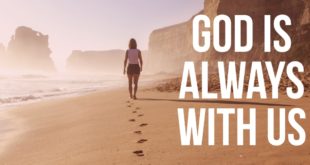By Family Policy Alliance
U.S. Supreme Court Justice Amy Coney Barrett has only been on the high bench for a month and half; and yet, she has already made her mark on history by voting to uphold the religious freedom in America.
On the eve of Thanksgiving, Justice Barrett was the deciding vote in a narrow 5-4 decision which temporarily blocked New York Governor Andrew Cuomo’s attendance limits in houses of worship. In the majority opinion, Justices Thomas, Alito, Gorsuch, Kavanaugh, and Barrett ruled that limiting churches, synagogues, and mosques to just 10 to 25 worshippers violated the Free Exercise Clause of the First Amendment.
“Members of this Court are not public health experts, and we should respect the judgment of those with special expertise and responsibility in this area. But even in a pandemic, the Constitution cannot be put away and forgotten. The restrictions at issue here, by effectively barring many from attending religious services, strike at the very heart of the First Amendment’s guarantee of religious liberty.”
In a concurring opinion, Justice Gorsuch strongly denounced the disparate treatment between houses of worship and other “essential businesses,” noting that while a large New York synagogue in the red zone would be capped at just 10 people, a small liquor store or bicycle shop in the same red zone would have no such restriction. Justice Gorsuch concluded:
“It is time—past time—to make plain that, while the pandemic poses many grave challenges, there is no world in which the Constitution tolerates color-coded executive edicts that reopen liquor stores and bike shops but shutter churches, synagogues, and mosques.”
The impact of Judge Barrett’s deciding vote and the high court’s decision in this case quickly rippled from one coast to another – from New York to California. On December 3rd, the U.S. Supreme Court vacated a federal judge’s ruling that allowed the State of California to impose harsher restrictions on worship services than comparable secular activities. The restrictions in California remain in place. However, they may not stand when the federal judge applies the new precedent.
Though questions remain about the government’s power to limit constitutional rights during a pandemic, the U.S. Supreme Court has now sent a clear message to our nation’s governors. Though the state may burden the free exercise of religion to further a compelling government interest (e.g. mitigating the spread of COVID), the state may only do so using the least restrictive means available. And under no circumstance should houses of worship be slapped with more severe restrictions than secular businesses, gatherings, and/or activities.
To all the pastors, ministry leaders, and volunteers working faithfully each week to prepare and offer a safe worship environment for your congregants – thank you! As my pastor recently shared, “It is our job to minister to the things that a vaccine cannot help…and to point people to the truth and hope we have in the Gospel of Jesus Christ.”
 SantaFeToday.com Santa Fe’s Hometown News
SantaFeToday.com Santa Fe’s Hometown News

